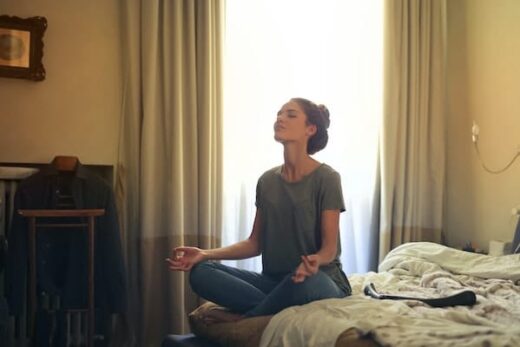
Meditation is recommended for the treatment of stress and anxiety. It allows us to take a break from the mind and the flow of information it generates. It effectively combats depressive relapses. Many therapists are more interested in the healing virtues of meditation.
The benefits of meditation
For your mental and physical health, based on the principle of meditation, it is necessary to take breaks. The mind undergoes situations, very often saturated by waves of emotions. As a result, it no longer has the capacity or distribution required to consume the information. This hampers the development of the sense of attention, which is essential for managing anxiety.
Whether it’s sleeping disorders, respiratory problems, high blood pressure or mild depression, meditation can help improve your health.
Accepting emotions through meditation
Meditation enables us to concentrate on an element (sound, object, smell…) that will capture our full attention, so that we can reorganize our thoughts and prevent them from wandering. The aim is to achieve a total letting go where our emotions are free to circulate.
Through this, we learn to discover and accept our true nature.
Daily practice
Meditation can be practiced individually or in a group. The technique depends on the type chosen
The aim is to focus attention on a specific element, to prevent the mind from wandering. You give yourself time to rest your mind. In time, you’ll be able to recharge your batteries and deal with everyday worries with ease.
To meditate at home, sit down in a quiet place. Adopt the posture that makes you feel most comfortable, close your eyes and relax. You can fix your attention on an image (a field of flowers, a lake, the sky…) or focus your meditation on your breathing. Remain like this for at least 30 minutes. You need to be regular (frequent) to reap the full benefits of exercise.
Mindfulness meditation combats depression
According to Dr Gérard Ostermann, French professor of therapeutics, internist and psychotherapist-analyst, “mindfulness meditation can be considered a vaccine against depression…”
For example, the technique of mindfulness meditation consists of sitting quietly, letting our breath guide us to the point of retrospection and acceptance. The aim is to concentrate on the body, so as to fully feel emotions without being subjected to them.
To practice mindfulness meditation, you’ll need a master to give you a few pointers. The learning cycle can last up to 8 weeks. After this cycle, you can practice alone at home.
Wellness, a healthy mind in a healthy body
On a day-to-day basis, don’t try to control your mind. Instead, try to get in touch with yourself. Stay in the present moment, without any particular goal, without trying to change things. Be in your own bubble to fully feel the emotions, breathe!
For more health tips and tricks on our blog and follow us on Facebook and Instagram.
Click here to see our YouTube videos.